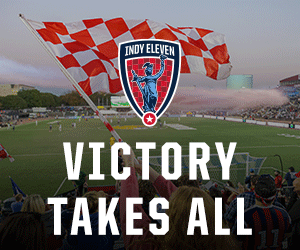By Wandini Dixon-Fyle
It could all be so simple: Dare to do, not just to dream. Steve Jobs once mused that the quintessential thing that separates doers from dreamers is the mentality that “You’ve got to act, and you’ve got to be willing to fail. You’ve got to be willing to crash and burn. With … starting a company, with whatever, if you’re afraid of failing you won’t get very far.”
Some of us are equipped for a foray into entrepreneurship, and some of us are not. Personally, I harbor the view that some people are born doers, while others are born dreamers. I candidly attest to being the latter at my core. I certainly dared to dream that the retail store of my dreams could exist and thrive as in my imaginings; however, it was only at the urging of my most ardent supporter that I began to take affirmative steps to make it a reality. Whether solely of your own volition or after an encouraging push, what matters is that you take the first (and ensuing) steps on the path to realizing your dream.
I am convinced that my deeply held risk aversion is in my DNA. My parents, immigrants who sacrificed everything to give their children educational opportunities in America, are notoriously cautious. My folks have typically cautioned against the very paths that animated the fervent dreamer in me, steering me instead toward security. Lovingly, they regarded my passion projects as whims that could not materialize or develop into something “worthwhile.” Knowing that their advice was well-meaning, over time, I came to agree that perhaps my various notions were better left in the realm of dreams. Of course, I continued to harbor my illustrious dreams. I just didn’t dare to do for fear of failing and for fear of being called to account for failing.
In hindsight, I keep asking, “But why?” Why let a dream wither and die on a vine, only to revisit it periodically in one’s mind and to wonder “what if?” Life compels us as dreamers, against all odds, to ask “why not?” and “why not me?” This is why our childhood dreams persist, notwithstanding our doubts, rationalizations and inaction.
Years later, after shuttering the aforementioned retail store, I am flush with proverbial “lessons learned.” You live and you learn. The simple truth is that failure is feedback, and some of us would rather not know. Often, we want to keep our dreams, like our ideals, closely guarded, unquestioned and unchallenged, and seemingly above reproach. To be sure, our detractors (not you, Mom and Dad!) cannot dismiss our dreams as misguided failures if we’ve taken no affirmative steps to realize them. And so it is that we employ this dubious analysis and hollow defense mechanism to spare ourselves the bruising that is inherent in trying and failing. Sadly, by shielding our dreams from criticism in this way, we also ensure that our dreams will forever remain mere fantasies.
Name a historical icon of any milieu and you will uncover a legacy littered with anecdotes of disappointment and failure. The dreams of Walt Disney, Steve Jobs, J.K. Rowling, Bill Gates, Oprah Winfrey, Albert Einstein, Thomas Edison and Michael Jordan — now regarded as the ultimate success stories in their respective fields — were stalled at one stage or another by missteps, setbacks and failures. What distinguishes these icons from other dreamers is that they regarded their seasons of failure objectively — not as dead ends halting their forward progress, but as detours spurring them to change course, to improve, to reposition and better equip themselves and to push ahead.
Forever dreamers, including my former self, will shield themselves from failure at all costs, even at the dear cost of a lifetime of wondering what might have been. The doers, however bruised and shaken they may be, persist. The doers resolve again (and again, and again) to force their dreams into the light, to expose their dreams to criticism and scrutiny, and sometimes to watch agonizingly as the dream fails to withstand the test.
The difference? The dreamer has but a dream from its inception to its insignificant demise. The doer, on the other hand, has feedback gleaned from the building, cultivation of skills, coalition-building, striving, bruising, pivoting, and, yes, failing. This feedback is data to be used as a basis for improvement, and an arsenal of information to employ in the inevitable rebuilding to come.
So, why take the risk? The answer depends on your desired path. As Steve Jobs warned, “If you’re afraid of failing, you won’t get very far.” If the relative comforts of the status quo suit you, plant your feet firmly and stay put in the land of the dreamers. If, however, you can view failure as a mere pit stop along your road to success, you must brace yourself and tread steadily onward.
Wandini is the owner of Profyle Concierge, a personal shopping and styling firm.









